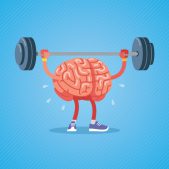Submitted by Lisa Vernon, RN,
Public Health
School is about to begin, and as a parent or community member, it’s our place to assist students in ways that will help them experience academic success. Research conducted by the Centers for Disease Control reveals that if we ensure healthy behavior, academic success will follow. Healthy behavior can be encouraged in a variety of ways, including physical activity, eating healthy foods, obtaining adequate sleep and making sure that routine clinic visits happen so that chronic health conditions can be detected and treated early in life.
Physical activity, especially aerobic activity, can occur both at school and at home. The CDC recommends at least 60 minutes of physical activity for five or more days of the week, but educational benefits have been seen even in students having less than an hour of activity each week. Physical activity can occur in single sessions or several sessions per day. It has been proven that physical activity affects learning abilities in different ways from encouraging nerve cells to bind together, which is necessary as the cellular basis for learning new information, to causing new nerve cell growth in the brain, which helps improve memory and organizational skills.
 One way to encourage physical activity is to limit television use in the home. The CDC found that watching television or playing video games for three or more hours a day dropped a student’s grade average significantly. Physical activity could be encouraged by turning off the television and disconnecting the computer to spend active time with the student in your life. It may be a challenge to set aside time for physical activity in your student’s day, but the advantages are worth the effort.
One way to encourage physical activity is to limit television use in the home. The CDC found that watching television or playing video games for three or more hours a day dropped a student’s grade average significantly. Physical activity could be encouraged by turning off the television and disconnecting the computer to spend active time with the student in your life. It may be a challenge to set aside time for physical activity in your student’s day, but the advantages are worth the effort.
Another way to lead to your student’s educational success is to provide food with nutritional benefits. When a child eats healthy food, proper growth naturally occurs, but the child’s academic level also grows stronger. Research shows that if a student eats breakfast every day, drinks milk at least once a day, and eats fruits or vegetables at least two times a day, they are more likely to be academically successful. Speak up in your child’s school, and ask that nutritional foods be served. Follow that plan at home with healthy options for dinner. The payback can be seen in many ways, but definitely in the child’s academic success.
Along with a healthy diet, the proper amount of sleep is important for your child. This means eight or more hours of sleep, depending on their age. This can be difficult to obtain, but research completed in 2009 shows a correlation between higher math scores and obtaining enough high-quality sleep. Middle and high school students tend to receive less than 6.5 hours of sleep each night. If hours slept drops below eight for this age group, the American Sleep Association said it can cause a decrease in cognitive function. Sleep is needed for brain development; therefore, a decrease in the amount your child receives can result in a drop in concentration, memory and the ability to achieve mathematical understanding. What can be done to achieve the right amount of sleep? Turn off bright lights and bright computer or television screens as bedtime approaches. Set a regular time to go to sleep and to get up in the morning — including weekends as much as possible. Lastly, decrease the amount of caffeine while increasing the amount of water your child consumes. All of these will help lead to beneficial sleep habits.
Lastly, set your child up for a healthy child visit. During these visits, medical providers are able to check for the onset of chronic health issues that can occur early in life and influence a child’s ability to concentrate. Citizen Potawatomi Nation Health Services offers well-child clinic visits that screen for the start of conditions such as diabetes or asthma. Along with these visits, make appointments for fluoride treatment in the dentistry department and vision care in optometry.
Remember, giving your child the healthy benefits they need will help them become successful in school and be successful in their future.
